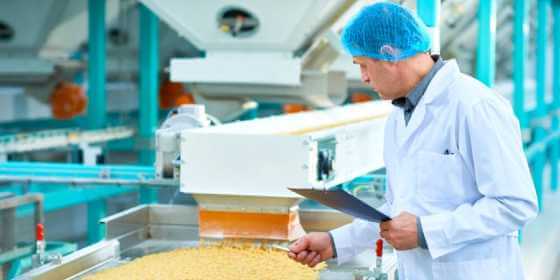ISO 22000:2018 Food Safety Management System Certification
ISO 22000:2018 Food Safety Management System is an ISO Standard certification that’s primarily used to assure that food items offered by an organization are safe in quality. The standard can be applied to any organization, irrespective of size and geographical location. However, these organizations have to be involved with the food supply chain sector. They should have a need to implement a system that ensures the delivery of safe-to-consume products.
ISO 22000:2018 prescribes requirements for a Food Safety Management system where an organization in the food supply chain sector needs to demonstrate its capability to control and take initiatives against food safety hazards, through the following elements:
- System management
- Interactive communication
- HACCP principles
- Prerequisite programs
The initiatives and the elements make sure the person consuming the food is not affected by spurious quality.
ISO 22000:2018 - An Introduction
ISO 22000 was recently updated in 2018, which is why the primary certification of this family is called ISO 22000:2018. It incorporates the tenets of Hazard Analysis and Critical Control Point (HACCP) systems and their applications, developed by the Codex Alimentarius Commission.
Through verifiable requirements, it combines the HACCP program with prerequisite programs. Hazard Analysis is imperative to the development of an effective Food Safety Management system. Hazard Analysis also helps with the organization of the information required to establish an effective union of control measures.
With ISO 22000, it’s understood that any and every food-related hazard can occur in a food supply chain, including issues associated with the type of food production process and machinery used. These elements are identified and assessed. It, therefore, helps determine and record which hazards need to be controlled by a particular organization and the ones that do not.
Applicability of ISO 22000:2018
ISO 22000 was documented by the International Organization for Standardization (ISO) to befit the needs of all organizations that fall in the food supply chain sector, regardless of complexity and size. This comprises organizations that are obliquely or directly occupied with one of the food supply chain’s operational stages. If an organization is small in strength or is less developed, it can apply for ISO 22000 certification, instead of the 2018 variant.
Objectives of ISO 22000:2018
The ISO 22000:2018 guideline defines the following objectives:
- To demonstrate compliance with ISO 22000:2018, so that it’s visible to relevant interested parties.
- Help an organization directly or indirectly involved with the food supply chain sector to devise, implement, operate, manage, and update a Food Safety Management System.
- to gauge and audit food safety requirements that are agreed upon with the customer
and to demonstrate compliance with the requirements.
- To communicate food safety issues with other stakeholders in the supply chain, effectively.
- To ensure the ISO 22000:2018-applying organization complies with the instated food safety policies.
- To seek certification of Food Safety Management System from a certification body or perform self-audits and self-declare compliance to ISO 22000:2018.
- Boast commitment to food safety through an effective Food Safety Management System that controls food safety hazards.
Advantages of ISO 22000:2018
The advantages ISO 22000:2018 can provide, include:
- Boost the confidence of customers, the surrounding community, employees, and authorities in the organization.
- International recognition through ISO 22000:2018 certification improves organization perception.
- An advantage over business competitors in terms of product quality.
- Better business management through simplified and systematized quality audits.
- Bolstering risk management controls across the food supply chain.
- Increased transparency and accountability in matters related to food quality and safety.
- Optimisation of the Food Safety Management system through continuous improvement ensures it is effective.
- Reassurance of robust and effective food safety procedures across the supply chain, to the management team.
- Ascertain strong controls that filter out hazardous materials and contamination effectively.
Sustainable Development Goals
Through Intercert, certification-applying organizations will be able to contribute to Sustainable Development Goals (SDG) prescribed by the United Nations in their ambitious 15-year plan that addresses crucial problems affecting the world. ISO 22000:2018
Food Safety Management System contributes to the following SDG codes:
- Goal 2: Zero Hunger
- Goal 3: Good Health and Well-being
- Goal 12: Responsible Consumption and Production
Why Intercert for ISO 22000:2018 Food Safety Management System
ISO 22000 Food Safety Management System Certification offers a host of advantages, as seen in the pointers above. It’s why you should prepare your organization to get trained and apply for this certification.
With an experience of more than 13 years, Intercert can prove to be a more than adequate certification and training partner. We deliver excellence through our international certifications, bolstered by the qualities of impartiality and transparency. Our certifications are highly sought-after due to our competitive and cost-effective services, compounded with the fact that they are accredited by the Standard Council of Canada (SCC).
Further, SCC is a signatory to an MLA (Multilateral Recognition Arrangement) of the IAF (International Accreditation Forum), IAAC (Inter American Accreditation Cooperation) & APAC (Asia Pacific Accreditation Cooperation) accreditation boards.
Contact us today to know more about our value-added certification and training services!
A PHP Error was encountered
Severity: Notice
Message: Undefined variable: clientlist
Filename: views/blog_view.php
Line Number: 67
Backtrace:
File: /home/sysintercert/public_html/application/views/blog_view.php
Line: 67
Function: _error_handler
File: /home/sysintercert/public_html/application/controllers/Blogs.php
Line: 41
Function: view
File: /home/sysintercert/public_html/index.php
Line: 316
Function: require_once
A PHP Error was encountered
Severity: Warning
Message: Invalid argument supplied for foreach()
Filename: views/blog_view.php
Line Number: 67
Backtrace:
File: /home/sysintercert/public_html/application/views/blog_view.php
Line: 67
Function: _error_handler
File: /home/sysintercert/public_html/application/controllers/Blogs.php
Line: 41
Function: view
File: /home/sysintercert/public_html/index.php
Line: 316
Function: require_once

